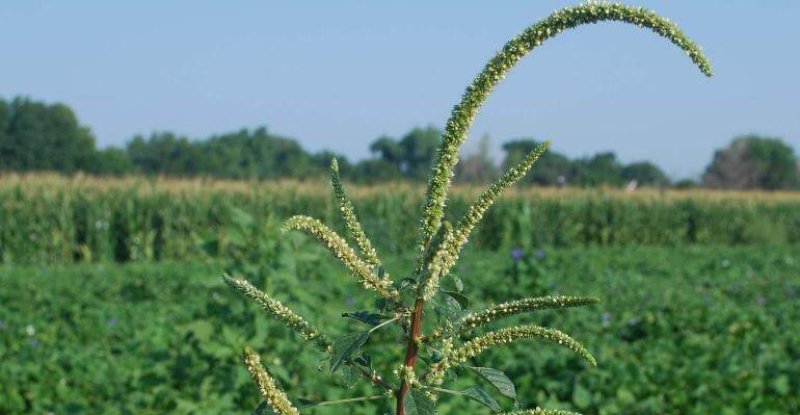Marrone Bio Innovations [November 12] …. announced positive results for the 2019 field trials for its novel bioherbicide, known as MBI-015.
Field tests conducted in 2019 using commercial rates for Marrone Bio’s novel bioherbicide demonstrated control of a target weed approaching that of a current post-emergent chemical herbicide. At commercial rates across multiple trial locations that used uniform protocols, control of palmer amaranth was evaluated at three stages of growth, 7-to-10 days after MBI-015 was applied. Control ranged from the mid-70s to the high-80s percent ranges.
Palmer amaranth is a noxious weed that has spread rapidly, and has developed resistance to eight herbicidal modes of action. Left unchecked, this weed can lead to dramatic yield losses in crops such as corn and soybeans.
“Our decision to make a strategic investment in further research for MBI-015 has been validated by these positive 2019 field trials,” said Dr. Pam Marrone, chief executive officer of Marrone Bio Innovations. “These results give us the confidence to move forward with a product that we expect to be a valuable tool in a grower’s integrated pest management system ….”
The company also has been issued U.S. Patent 8,822,193, which covers claims related to pre- and post-emergent herbicidal activity to control weeds for its bioherbicide. Additional regulatory and patent submissions are planned for both MBI-015, a liquid formulation for use in conventional crops, and MBI-014, a granular formulation of the bioherbicide targeted for organic use. The company also holds patents related to the underlying bacteria used in the bioherbicide and its associated pesticidal compounds.
“These positive results will be the basis for additional research to ensure crop tolerance, test for additional weed control and prove effective commercial use in growers’ integrated pest management systems,” Dr. Marrone added. “Growers continue to seek alternative tools to address the growing challenge of weed resistance. We believe there is significant opportunity for a bioherbicide to be part of that solution in the $24 billion global herbicide market.”
Industry Background
According to the Internal Survey of Herbicide Resistant Weeds, there are currently 505 unique cases of herbicide resistant weeds globally, with 259 species. Weeds have evolved resistance to 23 of the 26 known herbicide modes of action and to 167 different herbicides. Herbicide resistant weeds have been reported in 93 crops in 70 countries.
Palmer amaranth has developed resistance to eight modes of action, including to such herbicides as glyphosate, atrazine, sulfonylureas and dinitroanilines.
Read full, original article: New Field Trials for Marrone Bio’s Novel Bioherbicide Show Effective Control of Palmer Amaranth Weed































